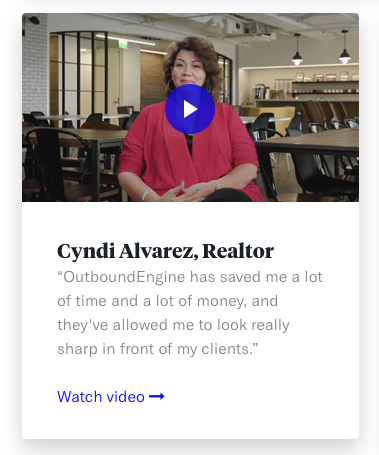Growing your referral business isn’t always a comfortable or easy process. While you can play the build-it-and-they-will-come game, we all know that getting referral business requires active planning and execution.
85 percent of small businesses say word-of-mouth referrals are the number one way that new prospects find out about their businesses. One advocate marketing firm found that referrals have a higher conversion, close faster, and have a higher lifetime value. Evidence like this makes it clear that a referral process will keep your business growing.
Building a referral process sounds simple in theory, but there are three things standing in the way for most businesses.
- Personality: It takes self-motivation and confidence to ask someone who just did business with you for what feels like a favor.
- Tact: This relates to an ongoing effort to refine your approach and process.
- Direction: You need to provide clear direction when someone is ready and willing to help.
When properly addressed, these are the 3 best-kept secrets for getting referral business.
1. Conquer Your Fears and Get Started
Long before you ask for a referral, overcome your fear of asking for referrals. In short, the longer you wait to get started, the more you’re missing out on referral business.
Getting referral business can be encouraged in other ways than directly asking for one. For example, HubSpot has written about helping small business owners develop a “referral mindset.”
Essentially, the referral mindset means you get what you give. By giving referrals, you’ll get referrals. If you have a go-to accountant that you have been going to for years, let your network know. If there’s an event planner who has made your life easier by helping make your annual holiday party a success, share it! Help your network grow their business and they’ll be just as inclined to help yours.
2. The Right Time (and Way) to Ask for Referrals
The best answer we can provide is basically when the relationship is strong enough to ensure their trust and belief in you. Pro tip: it’s definitely not the moment a transaction has been completed.
We know this answer isn’t exact. You’ll have to assess your unique relationship with your client, making it tough to give a universal recommendation. Professionals need to find their own best time to make a referral ask.
Two questions to consider before asking for referrals:
- Has value been provided and recognized by the client?
- What’s the personality of the referral-giving client?
Obviously, if the client has yet to receive value from the service provided, the timing isn’t right. You won’t see real estate agents asking for referrals prior to closing on a new home.
On a similar note, you need to make sure the client is aware of the value, too. Asking for referrals immediately after a contract has been signed still might not be the best time.
Oftentimes clients need some time and space to process a large transaction or decision before doing any favors. That’s why this is such a case-by-case answer.
Also, take into consideration the client’s personality. If they are more assertive, then a direct ask would be well received. However, if your client is passive and more introverted, a direct ask might be difficult for them to receive. Different personality types will need to be asked in different ways.
When you’re sure your client has received value from your services, that’s when you ask. Bottom line: Happy customers are happy to help you grow your business. Don’t be afraid to ask for their help.
3. Teach Them How to Refer…and Ask!
So you’ve found the optimal time to ask for a referral and have your approach figured out. Great! You’re now faced with the third challenge: teaching customers what to do and helping them do it.
There are three types of referrals you can ask for from your clients:
1) Traditional Referrals
This is when you thank your clients for their continued support and ask if they have any friends that could benefit from your services. Depending on your industry, you might be able to incentivize these requests with a referral campaign.
2) Testimonials
Even after being referred by a friend, people will still take the time to do research online. Potential customers get to hear from actual customers, in their own words, what working with you is like. Here’s an example from the OutboundEngine customer testimonials page:
3) Online Recommendations and Reviews
While this doesn’t directly put a new lead in your hands, reviews and recommendations on your site and third party sites are essential for your business. 85 percent of consumers trust online reviews as much as personal recommendations. Make sure you have reviews for potential customers to find.
Finally, be sure your call to action is clear. For example, “please leave me a review on my Yelp page about our time working together.”
- Did you provide a direct link to where you want customers/clients to go?
- Are further instructions needed?
- Did you clearly ask customers what you want them to do?
Improving this piece is likely the biggest improvement you can make in your referral process.
Start Getting Referral Business Now
Referrals are crucial for businesses of all sizes. Whether you’re a realtor, restaurant, or salon owner, the three secrets to getting referral business are the same:
- Happy customers are happy to help you, so worry less about asking and go for it.
- The best time to ask for referrals is after your client has received value from you and they communicate that to you.
- When someone is ready to help you out, make the process easy for them.
For those that want more automation with their referral strategy, finding a technology partner may be the solution. OutboundEngine can help.



![Better Email Etiquette Equals Better Marketing Results [16 Rules]](https://www.outboundengine.com/wp-content/uploads/shutterstock_411184843-1-400x250.jpg)

